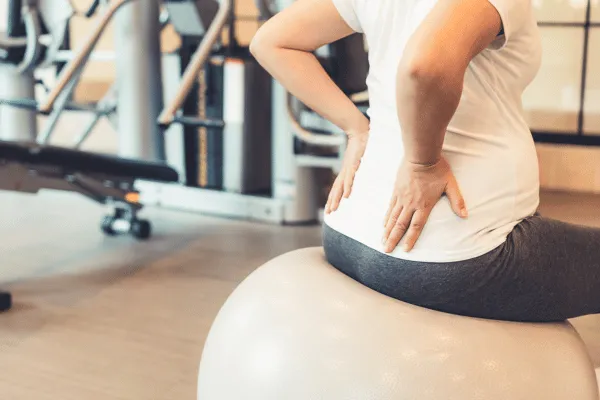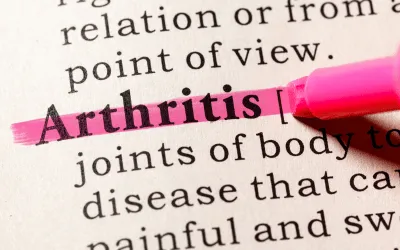About Arthritis
As the nation’s #1 cause of disability, arthritis affects nearly 60 million adults and 300,000 children. Over 100 types of arthritis and related conditions damage the joints and often other organs.
How can we assist you?
Helpful Tools for You

Arthritis and Pregnancy: Managing Symptoms and Ensuring a Healthy Pregnancy
Managing arthritis symptoms during pregnancy is crucial to ensure the well-being of both the mother and the developing baby. This blog focuses on addressing the importance of managing arthritis symptoms during pregnancy and promoting a healthy pregnancy overall. It covers various aspects such as understanding arthritis and its types, preparing for a healthy pregnancy, managing symptoms, addressing pregnancy-specific concerns, emphasizing emotional well-being and support, and providing guidance on postpartum care and long-term arthritis management. By empowering women with knowledge and practical tips, the blog aims to help them navigate the challenges of arthritis and have a fulfilling and healthy pregnancy.
Arthritis is a condition characterized by inflammation and pain in the joints. It affects millions of people worldwide and can have a significant impact on daily life. There are several different types of arthritis, each with its characteristics and causes.
The most common types of arthritis include:
Osteoarthritis: This is the most prevalent form of arthritis and occurs when the protective cartilage on the ends of bones wears down over time. It commonly affects weight-bearing joints, such as the knees, hips, and spine.
Rheumatoid Arthritis: Rheumatoid arthritis is an autoimmune disorder in which the body's immune system mistakenly attacks the joints, leading to inflammation and damage. It often affects the small joints of the hands, wrists, and feet.
Psoriatic Arthritis: Psoriatic arthritis is a type of arthritis that develops in some individuals with psoriasis, a skin condition characterized by red, scaly patches. It causes joint pain, stiffness, and swelling, often affecting the fingers, toes, and lower back.
Gout: A gout is a form of arthritis caused by the buildup of uric acid crystals in the joints. It typically affects the big toe but can also impact other joints, causing sudden and intense pain.
During pregnancy, the impact of arthritis symptoms can vary from woman to woman. While some individuals may experience a decrease in symptoms, others may find that their arthritis symptoms worsen or become more unpredictable. Pregnancy hormones and changes in joint mechanics can contribute to these fluctuations.
The effects of pregnancy on arthritis symptoms can be influenced by factors such as the type and severity of arthritis, individual hormonal changes, and the stage of pregnancy. Pregnant individuals with arthritis need to work closely with their healthcare providers to manage symptoms effectively and minimize any potential risks or complications.
Managing arthritis symptoms during pregnancy requires a comprehensive approach that takes into account both the unique needs of the mother and the safety of the developing baby. Here are some strategies to help manage arthritis symptoms during pregnancy:
Consult with Healthcare Professionals: It is essential to work closely with your healthcare team, including your obstetrician and rheumatologist. They can provide personalized guidance and adjust your treatment plan to ensure the safest and most effective management of your arthritis symptoms during pregnancy.
Medication Management: Discuss medication options with your healthcare provider, as some medications may need to be adjusted or changed during pregnancy to minimize potential risks. Your healthcare team can help identify safe medications for pain relief and inflammation control during pregnancy.
Physical Therapy and Gentle Exercises: Engage in physical therapy sessions specifically designed for pregnant women with arthritis. These exercises can help improve joint flexibility, strengthen muscles, and alleviate pain. Low-impact activities such as swimming or prenatal yoga can also provide gentle exercise while reducing stress on the joints.
Pain Management Techniques: Explore non-medication pain management techniques, such as applying heat or cold packs, using supportive devices like braces or splints, and practicing relaxation techniques like deep breathing or mindfulness.
Pacing and Rest: Listen to your body and avoid overexertion. Pacing yourself and incorporating regular rest periods can help prevent flare-ups and manage fatigue associated with arthritis.
Maintain a Healthy Diet: Eat a well-balanced diet rich in fruits, vegetables, whole grains, and lean proteins. This can support overall health, provide necessary nutrients, and help manage weight, which can reduce stress on the joints.
Assistive Devices and Modifications: Use assistive devices like ergonomic tools, supportive footwear, or devices to aid with mobility, as recommended by your healthcare provider or occupational therapist. Make modifications to your home or workplace to reduce strain on your joints and make daily activities more manageable.
Emotional Well-being and Support: Seek emotional support from loved ones, join support groups, or consider counseling to cope with the emotional challenges that can arise from managing arthritis symptoms during pregnancy. Managing stress and maintaining a positive mindset can have a significant impact on your overall well-being.
Pregnancy-Related Joint Pain and Hormonal Changes: During pregnancy, many women may experience pregnancy-related joint pain. This pain is often attributed to hormonal changes, weight gain, and the body's natural adaptations to support the growing baby. Increased levels of the hormone relaxin loosen the ligaments and joints in preparation for childbirth, which can lead to joint instability and discomfort.
Common areas affected by pregnancy-related joint pain include the hips, lower back, pelvis, and knees. The severity of joint pain can vary among individuals, and some women may find their arthritis symptoms worsen during pregnancy.
Special Considerations for Rheumatoid Arthritis and Other Autoimmune Conditions: Individuals with rheumatoid arthritis (RA) and other autoimmune conditions may require special considerations during pregnancy due to the potential impact on both the mother and the baby. Here are some key points to consider:
a. Medication Management: Consult with your rheumatologist and obstetrician to evaluate the safety of your current medications during pregnancy. Some medications, such as certain disease-modifying antirheumatic drugs (DMARDs), may need to be adjusted or discontinued to minimize potential risks to the baby. In some cases, alternative medications or reduced doses may be recommended.
b. Disease Activity: Pregnancy can affect the activity of autoimmune conditions. Some women with RA may experience improvements in their symptoms during pregnancy (due to changes in the immune system), while others may find their symptoms persist or worsen. Regular monitoring and communication with your healthcare team are essential to ensure the appropriate management of disease activity.
c. Pregnancy Planning: If you have a pre-existing autoimmune condition and are considering pregnancy, it is advisable to plan. Working closely with your healthcare team before conception allows for the optimization of your disease management, ensuring you enter pregnancy in the best possible health.
d. Increased Monitoring: Pregnant individuals with autoimmune conditions may require more frequent check-ups and monitoring throughout pregnancy. This may include regular assessments of disease activity, blood tests, and ultrasound examinations to monitor both maternal and fetal well-being.
e. Postpartum Care: After giving birth, it is important to continue managing your autoimmune condition effectively. Some individuals may experience disease flares in the postpartum period, while others may notice improvements. Your healthcare team can guide you on resuming or adjusting medications and provide support during this transition.

Coping with pregnancy-related concerns and emotional stress is important for the overall well-being of pregnant individuals. Here are some strategies to help cope with these challenges:
Education and Information: Educate yourself about the changes and challenges that commonly occur during pregnancy. Understanding what is normal and what to expect can help alleviate anxiety and provide a sense of control.
Open Communication: Share your concerns and feelings with your partner, family members, friends, or a trusted support network. Expressing your emotions and talking through your worries can provide comfort and reassurance.
Seek Professional Support: Consider consulting a mental health professional, such as a therapist or counselor who specializes in working with pregnant individuals. They can provide valuable support, guidance, and coping strategies for managing emotional stress during pregnancy.
Self-Care: Prioritize self-care activities that promote relaxation and emotional well-being. This can include activities such as taking regular breaks, practicing mindfulness or meditation, engaging in hobbies or activities you enjoy, and getting sufficient rest.
Support Groups: Joining support groups specifically for pregnant individuals or those with similar concerns can be helpful. Connecting with others who are going through similar experiences can provide a sense of belonging and understanding.
Physical Well-being: Take care of your physical health, as it can have a significant impact on emotional well-being. Eat a balanced diet, engage in regular physical activity (as advised by your healthcare provider), and get adequate sleep.
Positive Affirmations and Visualization: Practice positive affirmations and visualization techniques to promote a positive mindset. Repeat affirmations that focus on strength, resilience, and the joy of pregnancy. Visualization exercises can help create a sense of calm and relaxation.
Manage Stress: Identify stressors in your life and explore strategies to manage them effectively. This can include time management techniques, setting boundaries, practicing relaxation exercises, or engaging in stress-reducing activities such as prenatal yoga or gentle exercise.
Engage in Supportive Activities: Participate in activities that provide emotional support and connection, such as attending prenatal classes, joining pregnancy support groups, or engaging in prenatal yoga or exercise classes. These activities can help you build a support network and connect with others who share similar experiences.
Managing arthritis symptoms after giving birth requires careful consideration of breastfeeding considerations and medication safety. Here are some guidelines to help navigate this period:
Consult with Healthcare Providers: It is crucial to consult with your healthcare team, including your rheumatologist and obstetrician, regarding postpartum management of arthritis symptoms. They can provide guidance specific to your situation and ensure the most appropriate treatment options.
Breastfeeding Considerations: (a.) Medication Safety: Discuss the safety of arthritis medications while breastfeeding with your healthcare provider. Some medications may pass into breast milk in small amounts, but the overall risk to the baby is often considered low. Your healthcare provider can help identify medications that are compatible with breastfeeding or suggest alternative treatment options if needed. (b.) Timing Medications: Timing medication doses can help minimize the concentration of the medication in breast milk. Your healthcare provider can guide optimal timing to balance symptom management with the safety of breastfeeding.
Pain Management Techniques: Explore non-medication pain management techniques to help alleviate arthritis symptoms after giving birth. This can include applying heat or cold packs, engaging in gentle exercises or physical therapy, and practicing relaxation techniques like deep breathing or mindfulness.
Physical Recovery and Rest: Allow yourself time to recover physically after childbirth. Ensure you get sufficient rest, especially during periods of increased arthritis symptoms. Balancing rest and gentle movement can help manage pain and promote healing.
Supportive Measures: Use assistive devices, such as braces or splints, to support affected joints during activities. Modify daily tasks and activities to reduce strain on the joints and conserve energy. Engage in gentle exercises or physical therapy as recommended by your healthcare provider to aid in joint flexibility and strength.
Healthy Lifestyle: Maintain a healthy lifestyle by eating a balanced diet, staying hydrated, and engaging in regular physical activity suitable for your postpartum recovery. Physical activity can help reduce arthritis symptoms and improve overall well-being.
Postpartum Check-ups: Attend scheduled postpartum check-ups with your healthcare providers. They can monitor your arthritis symptoms, assess disease activity, and adjust treatment plans if necessary.
Effects of Arthritis

Cause of Disability
In the United States, 23% of all adults, or more than 54 million people, have arthritis. It is a leading cause of work disability, with annual costs for medical care and lost earnings of $303.5 billion.

Workforce Effects
Sixty percent of US adults with arthritis are of working age (18 to 64 years). Arthritis can limit the type of work they are able to do or keep them from working at all.

Global Impact
In fact, 8 million working-age adults report that their ability to work is limited because of their arthritis. For example, they may have a hard time climbing stairs or walking from a parking deck to their workplace.
Promoting Interventions That Reduce Arthritis Pain
American Arthritis Foundation recognizes several proven approaches to reduce arthritis symptoms:
Be active. Physical activity—such as walking, bicycling, and swimming—decreases arthritis pain and improves function, mood, and quality of life. Adults with arthritis should move more and sit less throughout the day. Getting at least 150 minutes of moderate-intensity physical activity each week is recommended.
Protect your joints. People can help prevent osteoarthritis by avoiding activities that are more likely to cause joint injuries.
Talk with a doctor. Recommendations from health care providers can motivate people to be physically active and join a self-management education program. Should your arthritis be interfering with your activities of daily living you may be a candidate to receive many new treatments, and learn how to reverse the arthritis condition.
Have a question?
We're Here to Help
By providing my phone number, I agree to receive text messages from the business.


